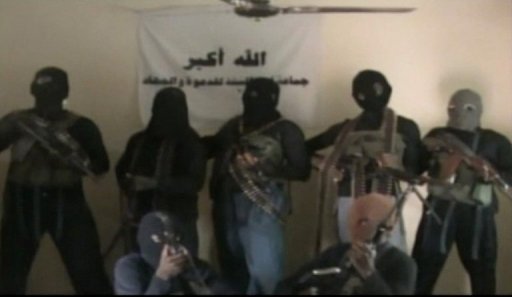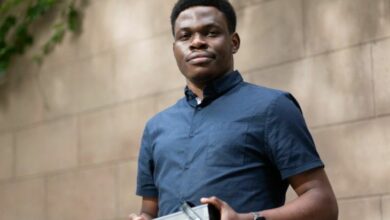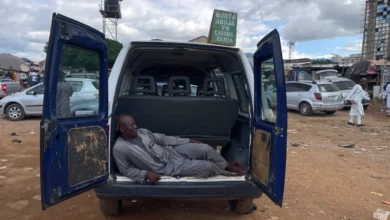
Gun and bomb attacks by Islamist insurgents in the northern Nigerian city of Kano last week killed at least 178 people, a hospital doctor said on Sunday, underscoring the daunting challenge President Goodluck Jonathan now faces to prevent his country sliding further into chaos.
A coordinated series of bomb blasts and shooting sprees mostly targeting police stations on Friday sent panicked residents of Nigeria's second biggest city of more than 10 million people running for cover.
The scale of the carnage makes this by far the deadliest strike claimed by Boko Haram, a shadowy Islamist sect that started out as a clerical movement opposed to western education but has become the biggest security menace facing Africa's top oil producer.
"We have 178 people killed in the two main hospitals," the senior doctor in Kano's Murtala Mohammed hospital said following Friday's attacks, citing records from his own and the other main hospital of Nasarawa.
"There could be more, because some bodies have not yet come in and others were collected early."
Boko Haram has been blamed for killing hundreds of people in increasingly sophisticated bombings and shootings, mostly targeting security forces, establishment figures and more recently Christians, in country split roughly evenly between them and Muslims.
Apart from a handful of forays into the capital Abuja, the sect's energies have been concentrated in the majority Muslim north, far from the oil producing facilities along the southern coast that keep Africa's second biggest economy afloat.
Explosions struck two churches in the northern city of Bauchi on Sunday, witnesses said, destroying one of them completely, although there were no immediate reports of casualties.
Jonathan, a Christian southerner who helped broker a deal that largely ended an insurgency by militants in the oil-rich southeast, has been criticized for failing to grasp the gravity of the crisis unfolding in the north, and of treating it as a pure security issue that will fizzle out by itself.
UN condemns attacks
The government has announced a dusk-to-dawn curfew in Kano, an ancient city that was once part of an Islamic caliphate trading riches on caravan routes connecting sub-Saharan Africa with the Mediterranean.
Worsening insecurity has led some to question whether Nigeria isn't sliding into civil war, 40 years after the secessionist Biafra conflict killed over a million people, though few think an all-out war splitting the country into two or more pieces is a likely outcome.
A spokesman for the UN Secretary-General Ban Ki-moon condemned the attacks in a statement.
"The Secretary-General is appalled at the frequency and intensity of recent attacks in Nigeria, which demonstrate a wanton and unacceptable disregard for human life," it said.
"The Secretary-General also expresses his hope for swift and transparent investigations into these incidents that lead to bringing the perpetrators to justice."
European powers and the African Union have also condemned the attacks.
Boko Haram became active around 2003 in the remote, northeastern state of Borno, on the threshold of the Sahara, but its attacks have spread into other northern states, including Yobe, Kano, Bauchi and Gombe.
Boko Haram, a Hausa term meaning "Western education is sinful," is loosely modeled on Afghanistan's Taliban, but analysts say the anger it channels reflects a perception that north has been marginalized from oil riches concentrated in the south.
The sect originally said it wanted sharia, Islamic law, to be applied more widely across Nigeria but its aims appear to have changed. Recent messages from its leaders have said it is attacking anyone who opposes it, at present mainly police, the government and Christian groups.
It has become increasingly deadly in the last few months.
At least 65 people were killed in the northeast Nigerian city of Damaturu, Yobe state, in a spate of gun and bomb attacks in November.
A bomb attack on a Catholic church just outside the capital Abuja on Christmas Day, claimed by Boko Haram, killed 37 people and wounded 57.
In a Reuters interview in late December, National Security Adviser General Owoye Andrew Azazi are considering making contact with moderate members of shadowy sect via "back channels," even though explicit talks are officially ruled out.




